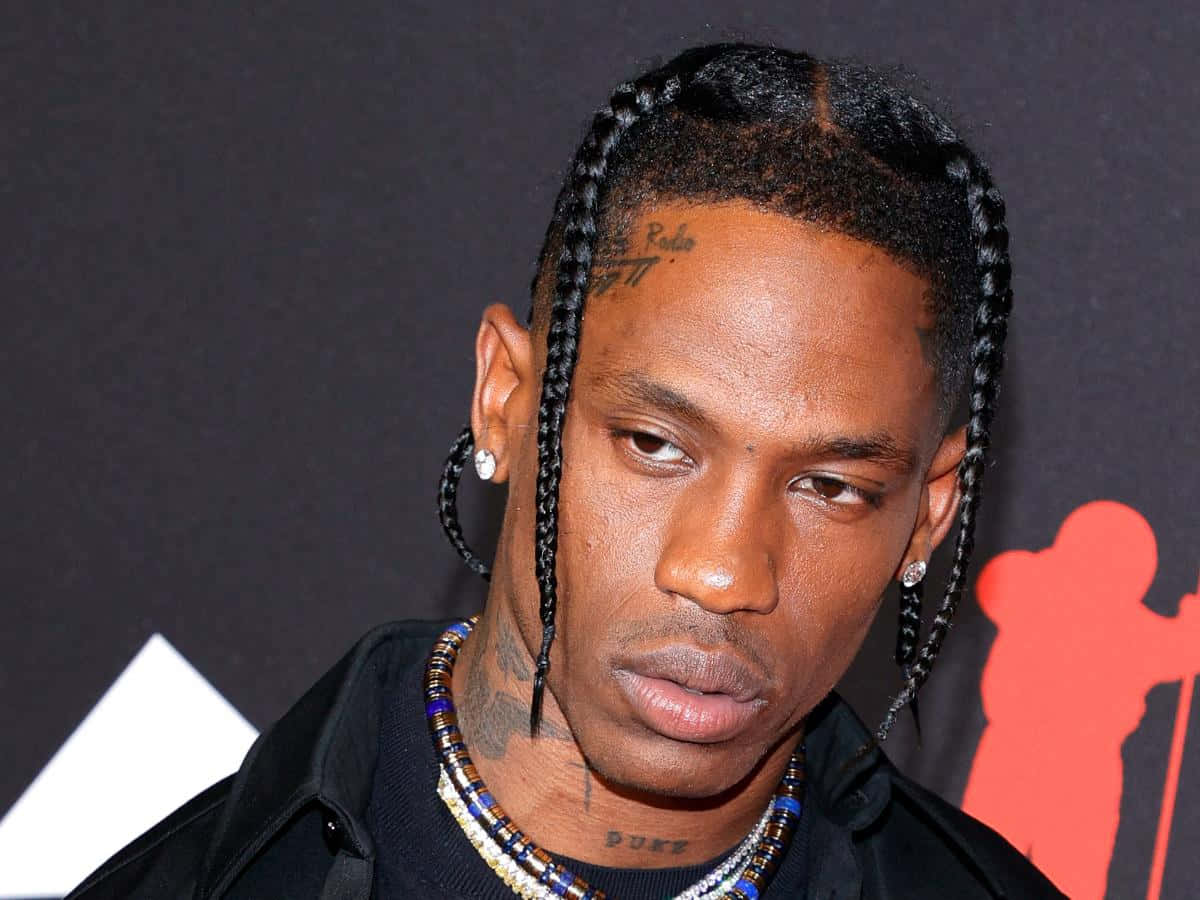People often wonder about the personal lives of public figures, and it's quite natural to be curious about those who are constantly in the spotlight. When it comes to someone like Travis Scott, a hugely popular musician and cultural icon, questions about his health and personal characteristics sometimes pop up. One query that has been floating around online is, "is Travis Scott autistic?" This article aims to explore that question with care and respect, looking at what information is actually out there.
Public figures, you know, live their lives in a very visible way, and that visibility, in a way, can lead to all sorts of discussions and, well, sometimes rumors. Fans and the general public often feel a connection to celebrities, which can spark curiosity about aspects of their lives that aren't usually shared. It's a bit like wanting to know more about a character in a favorite story, but here, it's a real person.
So, when a question like "is Travis Scott autistic" starts to gain traction, it's important to approach it thoughtfully. Our goal here is to provide clear, honest information, drawing a line between what's known and what's just talk. We'll also touch on why respecting privacy, especially concerning health matters, is absolutely key for everyone, famous or not, as a matter of fact.
Table of Contents
- Travis Scott: A Brief Overview
- The Question: Is Travis Scott Autistic?
- Why Do People Ask This?
- Understanding Autism Spectrum Disorder
- The Role of Online Speculation and Misinformation
- Respecting Privacy in the Digital Age
- Frequently Asked Questions
- Conclusion
Travis Scott: A Brief Overview
Travis Scott, whose real name is Jacques Bermon Webster II, is a pretty big deal in the music world, you know. He's a rapper, singer, songwriter, and record producer from Houston, Texas. His unique sound, often described as dark, atmospheric, and full of heavy bass, has really made him stand out. He's known for his energetic live performances, which are honestly quite the spectacle, and his albums have gained a lot of critical praise and commercial success.
Beyond his music, Travis Scott has also become a significant figure in fashion and brand collaborations. He's worked with some huge names, creating popular products that often sell out super fast. This wide appeal means he's constantly in the public eye, which, you know, naturally leads to a lot of discussion about him, both his work and his personal life.
Personal Details and Bio Data
Here’s a quick look at some general details about Travis Scott, just for context:
| Full Name | Jacques Bermon Webster II |
| Known As | Travis Scott |
| Date of Birth | April 30, 1991 |
| Age (as of 2024) | 33 years old |
| Birthplace | Houston, Texas, USA |
| Occupation | Rapper, Singer, Songwriter, Record Producer |
| Genre | Hip hop, Trap, Psychedelic Rap |
| Children | 2 (with Kylie Jenner) |
The Question: Is Travis Scott Autistic?
The straightforward answer to "is Travis Scott autistic" is that there is no public information to suggest he is, as a matter of fact. Travis Scott has never publicly stated or confirmed that he has autism spectrum disorder. Health information, especially something like a medical diagnosis, is a very private matter. Unless an individual chooses to share such details themselves, any speculation about their health status is just that – speculation, and honestly, it's not based on confirmed facts.
In the age of social media and constant online chatter, rumors about celebrities can spread incredibly fast, you know. People might observe certain behaviors or mannerisms and then, perhaps, jump to conclusions without any real basis. It's really important to remember that observing someone from afar, even a public figure, doesn't give us enough information to make any kind of medical judgment. So, there is no verified information available that suggests Travis Scott is autistic, pretty much.
Why Do People Ask This?
You might wonder why this specific question, "is Travis Scott autistic," comes up so often online. Well, there are a few reasons, I mean. Sometimes, it's simply curiosity about neurodiversity, as people are becoming more aware of conditions like autism and how they present in different individuals. They might observe certain traits or behaviors in public figures, perhaps in interviews or performances, and then, you know, wonder if those traits align with what they understand about autism.
Another reason could be the way information gets shared and amplified on the internet. A single comment or observation on a forum or social media platform can, in a way, quickly turn into a widely discussed topic, even if it started as just a random thought. People might also be looking for representation, hoping to see public figures who share similar experiences or diagnoses, which is, you know, a very human desire. However, it's really important to separate that desire from actual confirmed facts about a person's health, obviously.
It's also worth noting that when people search for information about public figures, sometimes the internet can pull up all sorts of discussions. For instance, you might stumble upon old forum posts talking about "travis's xbox" or discussions about "Torchlight (2009)" and how "travis baldree was on the team." These bits of text, like those found in an "evox.ini" file or on forums discussing "the official flat travis project thread," are about different individuals named Travis, or entirely different topics. It's a good reminder that not every mention of a name online refers to the famous artist Travis Scott, and that can lead to confusion when looking for specific details about him, basically. You might even see people asking about "travis lyric strike a chord" or "question about fran's fond music" in forums, which, in fact, have nothing to do with the musician Travis Scott, just a little.
Understanding Autism Spectrum Disorder
To understand why speculating about someone's diagnosis is problematic, it helps to know a little about what autism spectrum disorder (ASD) actually is. Autism is a developmental condition that affects how a person communicates, interacts, learns, and behaves. It's called a "spectrum" because it shows up differently in every person, with a really wide range of strengths and challenges, so it's almost unique to each individual.
Some people with autism might have difficulties with social communication, like understanding social cues or making eye contact. Others might have very focused interests, or they might engage in repetitive behaviors. These characteristics can vary greatly from person to person, and they're not always obvious to someone observing from the outside. Diagnosing autism requires a thorough evaluation by qualified medical professionals, like psychologists or neurologists, and it's certainly not something that can be done based on public appearances or online chatter, honestly.
It's also important to remember that autism is not a mental illness, nor is it something that needs to be "cured." It's a different way of experiencing the world, and many autistic individuals lead full, meaningful lives, often with unique talents and perspectives. Increased public awareness about autism is a good thing, of course, but that awareness should also come with a strong sense of respect for individual privacy and the complexities of diagnosis, naturally.
The Role of Online Speculation and Misinformation
The internet, as we know, is a powerful tool for sharing information, but it can also be a breeding ground for rumors and misinformation, very easily. When a question like "is Travis Scott autistic" starts trending, it often isn't because of any confirmed facts. Instead, it might be fueled by social media posts, fan theories, or even just idle curiosity that gets amplified by algorithms, you know.
These kinds of discussions can be harmful. Spreading unverified claims about someone's health, especially a private medical condition, can be damaging to their reputation and their personal well-being. It also contributes to a culture where privacy is undervalued, and people feel entitled to information that isn't theirs to know. For instance, you might see discussions about "gift to travis" or "show me your christmas pics" in a general chat forum, and while harmless, they illustrate how easily personal details (even if about a different 'Travis') become public discussion points, pretty much.
It's crucial for us, as consumers of information, to be critical about what we read online. If a celebrity hasn't openly discussed a health condition, it's best to assume they haven't shared it for a reason, and that reason is often privacy. Relying on credible sources and being wary of sensational headlines is, frankly, always a good practice, especially when dealing with sensitive topics like someone's health, really.
Respecting Privacy in the Digital Age
In our connected world, where information travels at lightning speed, the concept of privacy has, you know, become more challenging to maintain. For public figures like Travis Scott, every aspect of their life can feel like it's under a microscope. However, being a celebrity doesn't mean giving up the right to personal privacy, especially when it comes to sensitive health matters, as a matter of fact.
Respecting someone's privacy means not speculating about their medical conditions, even if you're curious. It means understanding that a diagnosis of autism, or any other health condition, is a personal journey and a private piece of information unless the individual chooses to disclose it. Our discussions online should always be guided by empathy and respect, rather than by a desire for gossip or unverified details, too it's almost.
Instead of asking "is Travis Scott autistic," perhaps a better approach is to focus on his work, his music, and the publicly shared aspects of his life. If he ever chooses to share personal health information, that's his decision alone. Until then, our role is to respect his boundaries and avoid contributing to the spread of unconfirmed rumors. Learn more about neurodiversity and public understanding on our site, and you can also link to this page for more on celebrity culture and privacy.
Frequently Asked Questions
Has Travis Scott ever talked about having autism?
No, Travis Scott has never publicly stated or confirmed that he has autism spectrum disorder. Any claims or discussions suggesting otherwise are based on speculation and not on official statements from him or his representatives, honestly.
Why do rumors about celebrities' health spread online?
Rumors about celebrities' health often spread due to public curiosity, the rapid sharing of unverified information on social media platforms, and sometimes, a misunderstanding of public behavior. People might, you know, interpret certain actions or traits in a way that leads to unfounded speculation, pretty much.
Is it appropriate to ask if a celebrity has a private medical condition?
It's generally not appropriate to ask or speculate about a celebrity's private medical conditions. Health information is personal, and individuals, including public figures, have a right to privacy regarding their diagnoses. Unless they choose to share it themselves, it's best to respect their personal boundaries, essentially.
Conclusion
The question "is Travis Scott autistic" is a query that surfaces online, but there's no public evidence or statement from Travis Scott himself to support it. His health status, like anyone else's, is a private matter. It's really important for us to approach discussions about public figures with respect, valuing their privacy over unverified rumors, basically. Focusing on confirmed information and avoiding speculation helps create a more thoughtful and considerate online environment, you know, for everyone involved.



Detail Author:
- Name : Rickey Dibbert
- Username : orval.hayes
- Email : scremin@hackett.com
- Birthdate : 1999-08-11
- Address : 80152 Aaliyah Avenue Apt. 090 Amparoside, KY 68991-6016
- Phone : 1-650-298-7642
- Company : Romaguera, Spencer and Runolfsson
- Job : Mechanical Drafter
- Bio : Corporis ut inventore dolorem aut iure. Perferendis laudantium nobis hic quam quaerat sit. Culpa voluptas porro culpa omnis veniam ut. Ratione delectus quia officia autem.
Socials
tiktok:
- url : https://tiktok.com/@luna8061
- username : luna8061
- bio : Qui modi quasi sit id aut quas facere.
- followers : 1310
- following : 1513
twitter:
- url : https://twitter.com/yostl
- username : yostl
- bio : Eum maxime corporis illum excepturi. Ut et repellat quo totam. Omnis sit minus dolorum unde vero pariatur.
- followers : 2324
- following : 2729
instagram:
- url : https://instagram.com/yostl
- username : yostl
- bio : Illum eum perspiciatis dignissimos voluptatum ut. Consequatur debitis asperiores illo et.
- followers : 3019
- following : 1939